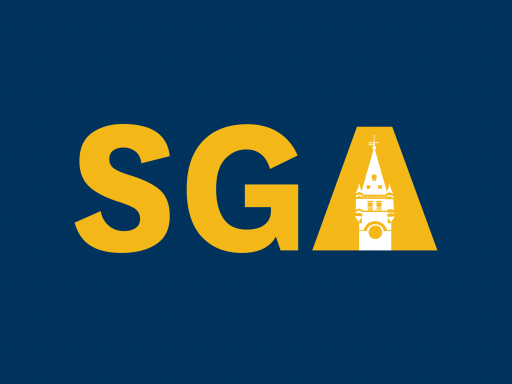IF:
- You need help with the residential/academic accommodations process
- You need a personalized presentation of our Accommodations Guide workshop
- You need access to our Accommodations Guides posters
- You are an injured athlete seeking residential accommodations
- You are a professor seeking to incorporate accessible practices into your curriculum
- You have general questions about the Access Services department
- You have questions about improving Bryn Mawr’s inaccessible campus
- You are a prospective student concerned about campus inaccessibility
- You want to get involved in any way!
Contact Committee Head, Esenia Banuelos, at ebanuelos@brynmawr.edu
SGA Access Services’ Accommodations Guide Key Features
- Difference between “barriers” and “symptoms” as defined by the Access Services department
- A list of possible academic and residential accommodations offered by Bryn Mawr College as stated by the Director of Access Services, Deb Alder
- Explanations of questions found on required questionnaires and documents with examples
- Criterion of documentation as defined by the 2020 Guide of Providing Accommodations for Students with Disabilities
- Relevant information for students who do not have access to documentation
Important Links!
Instagram: @accessbmc
Description:
The SGA Access Services Committee works to increase accessibility and disability visibility on-campus in the name of disability justice. We regularly meet and collaborate with the Access Services department, lead Access Advisory meetings, and generally represent neurodiverse and disabled students to the Department and vice versa.
The Access Services Committee is a newly-active organization that works to champion accessibility challenges on campus, corrects inaccessible language, and works in tandem with faculty and administration to ensure campus, curriculum and classroom accessibility.
The Committee is regularly coming up with new initiatives to increase accessibility on this campus and is constantly in contact with students, administration and faculty to reduce historical inaccessibility. One of our main goals is to promote the accessible standards set up by the Universal Design for Learning (UDL) policy as a requirement for all curricula, and have established Accessibility Review as an opt-in procedure for all professors seeking feedback on their curricula and in-class instruction.
Additionally, we are creating great strides towards increasing transparency of the Department and scopes of inaccessibility in all forms through active communication. We are mainly using Instagram to communicate Committee activities.
Accessibility is a forever-morphing and ever-present goal for all students, and exists beyond our understanding of accessibility exclusively for neurodiverse and disabled students. We are also committed to championing accessibility in terms of religion, residency status and educational background for all.
Accomplishments:
- Started collecting data on student perceptions of the Access Services Department
- Spoke to neurodiverse/disabled students on campus/curriculum inaccessibility at EnAble meetings
- Working with Psychology professors and students to develop an IRB-reviewed survey on students’ AS experiences
- Presented to tour guides on campus inaccessibility with EnAble
- Working with Co-Head to develop podcast to increase neurodiverse and disabled students
- Student Accessibility Leadership meeting with Director and students
- Released residential accommodations guide to EnAble Listserv
- Launched accessibility review with Professors AJ Vargas and Aytug Sasmaz
- Psychology department seeking universal class Zoom access
- Wellness Education Week 2023 Workshop and Presentation of Accessibility Review data
- Started work to remove “Asperger’s Syndrome” and other outdated, eugenicist, and inaccessible content from the Access Services’ section on the College website
- Started work to ensure wheelchair-accessibility in dormitories and buildings
- Interviewing candidates for the full-time Assistant Director of the Access Services Department

